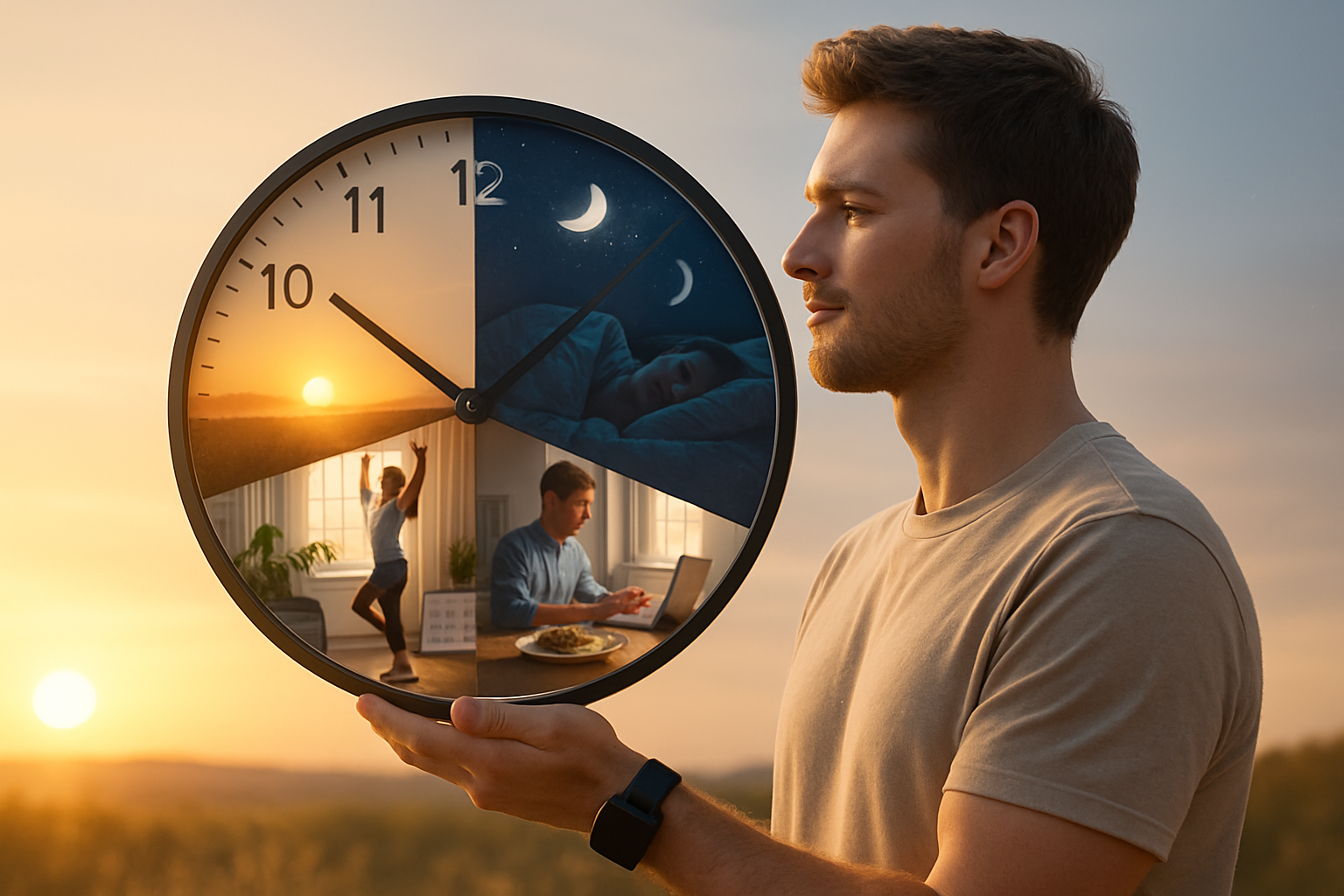Chronobiology: Syncing Your Life with Your Inner Clock
The intricate dance between our body's internal rhythms and the external world has long fascinated scientists and health enthusiasts alike. But what if we told you that understanding and harnessing these rhythms could revolutionize your health, productivity, and overall well-being? Welcome to the fascinating world of chronobiology, where time isn't just a concept, but a powerful tool for optimizing your life.

The Science Behind Your Body Clock
At the heart of chronobiology lies the circadian rhythm, a roughly 24-hour cycle that governs numerous physiological processes in our bodies. This internal clock is orchestrated by a cluster of neurons in the brain’s hypothalamus called the suprachiasmatic nucleus (SCN). The SCN receives light signals from our eyes and uses this information to synchronize our body’s functions with the external environment.
Research has shown that nearly every cell in our body contains its own molecular clock, all working in harmony under the direction of the SCN. These cellular clocks regulate the expression of thousands of genes, influencing everything from metabolism to immune function. Understanding this intricate system provides valuable insights into how we can optimize our daily routines for better health and performance.
Chronotypes: Are You a Lion, Bear, Wolf, or Dolphin?
One of the most intriguing aspects of chronobiology is the concept of chronotypes. While we all follow a general 24-hour rhythm, individual variations in these patterns lead to different chronotypes. Dr. Michael Breus, a clinical psychologist and sleep specialist, has popularized a classification system that divides people into four chronotypes: Lions, Bears, Wolves, and Dolphins.
Lions are early risers, peaking in productivity in the morning. Bears follow the solar cycle more closely, being most active during daylight hours. Wolves are night owls, finding their groove in the evening hours. Dolphins, often associated with light sleepers, have more erratic sleep patterns and may struggle with insomnia.
Identifying your chronotype can be a game-changer in structuring your day for maximum efficiency and well-being. By aligning your work, exercise, and social activities with your natural rhythms, you can boost your energy levels, improve your mood, and enhance your overall quality of life.
Chrono-Nutrition: Eating in Sync with Your Body Clock
The field of chrono-nutrition explores how the timing of our meals interacts with our circadian rhythms to impact health and metabolism. Emerging research suggests that when we eat may be just as important as what we eat.
Studies have shown that our bodies process food differently depending on the time of day. For instance, insulin sensitivity is typically higher in the morning, making it easier for our bodies to manage blood sugar levels after breakfast. Conversely, eating late at night, when our bodies are preparing for sleep and repair, can disrupt our metabolic processes and potentially contribute to weight gain and other health issues.
Implementing chrono-nutrition principles might involve front-loading your calories earlier in the day, limiting late-night snacking, and considering time-restricted eating patterns that align with your body’s natural rhythms. This approach not only supports healthy weight management but may also improve digestion, sleep quality, and overall metabolic health.
Chronotherapy: Timing Medical Treatments for Maximum Effect
One of the most promising applications of chronobiology is in the field of medicine. Chronotherapy, the practice of administering treatments in harmony with the body’s circadian rhythms, is gaining traction as a way to enhance the efficacy of various therapies while minimizing side effects.
For example, research has shown that the timing of chemotherapy can significantly impact its effectiveness and side effects. Some cancer medications have been found to be more effective and less toxic when administered at specific times of day that align with the body’s natural rhythms.
Similarly, the timing of blood pressure medications can be optimized to match the natural fluctuations in blood pressure throughout the day. This chronotherapeutic approach has been shown to improve blood pressure control and reduce the risk of cardiovascular events.
As our understanding of chronobiology deepens, we can expect to see more personalized treatment plans that take into account an individual’s unique circadian profile, potentially revolutionizing the way we approach healthcare.
Practical Applications for Everyday Life
Understanding chronobiology can have profound implications for our daily lives, helping us optimize everything from our sleep schedule to our work productivity. Here are some practical ways to apply chronobiological principles:
-
Sync your sleep schedule with your chronotype
-
Time your meals to support your body’s natural metabolic rhythms
-
Schedule high-focus work during your peak alertness hours
-
Plan exercise at times when your body temperature is naturally higher for better performance
-
Adjust your light exposure to support healthy circadian rhythms
Chronobiology Insights for a Healthier You
-
Morning light exposure can help reset your circadian clock and improve sleep quality
-
The best time for cognitive tasks is typically 2-4 hours after waking
-
Physical performance tends to peak in the late afternoon for most people
-
Eating your largest meal earlier in the day may support better weight management
-
Blue light exposure in the evening can disrupt melatonin production and sleep quality
-
Short power naps (15-20 minutes) in the early afternoon can boost alertness without interfering with nighttime sleep
As we continue to unravel the mysteries of our internal clocks, the potential for improving our health and well-being through chronobiology is immense. By aligning our lifestyles with our natural rhythms, we can unlock new levels of vitality, productivity, and overall health. The key lies in understanding and respecting the intricate dance between our bodies and time itself. As you embark on your chronobiological journey, remember that small, consistent changes can lead to profound improvements in your quality of life. Listen to your body, honor its natural rhythms, and watch as you sync into a more vibrant, energized version of yourself.





